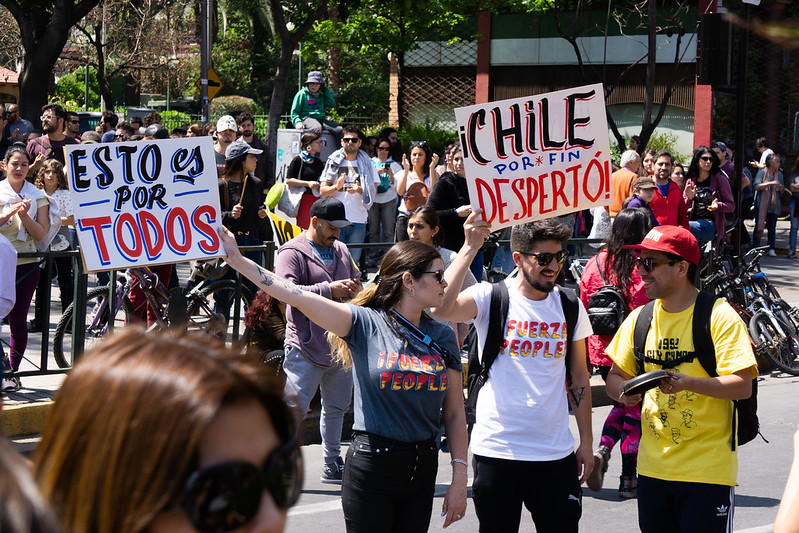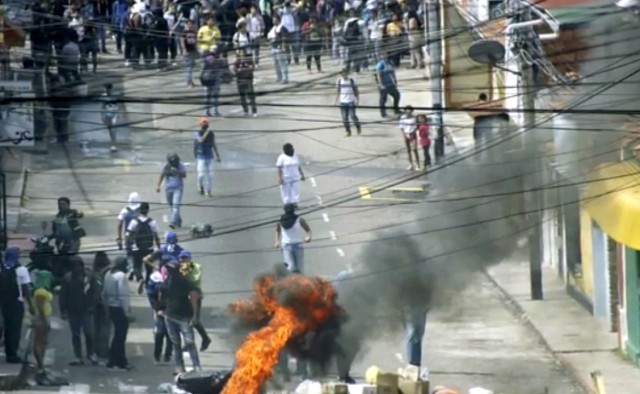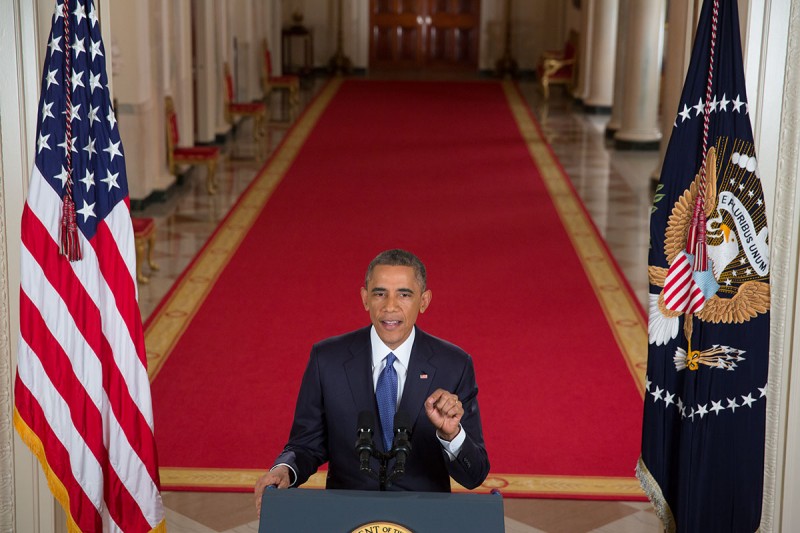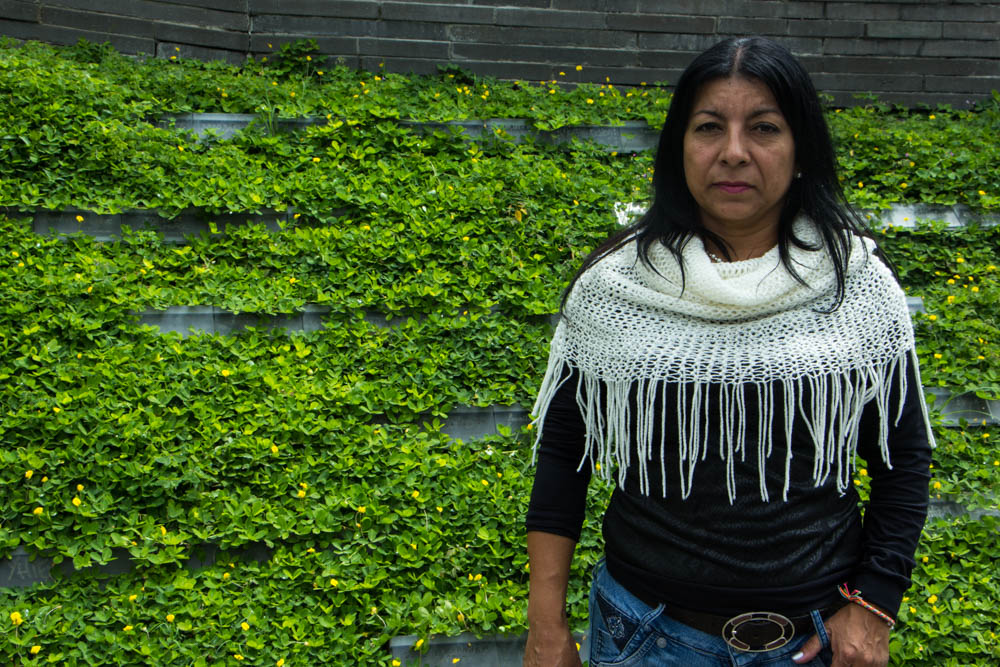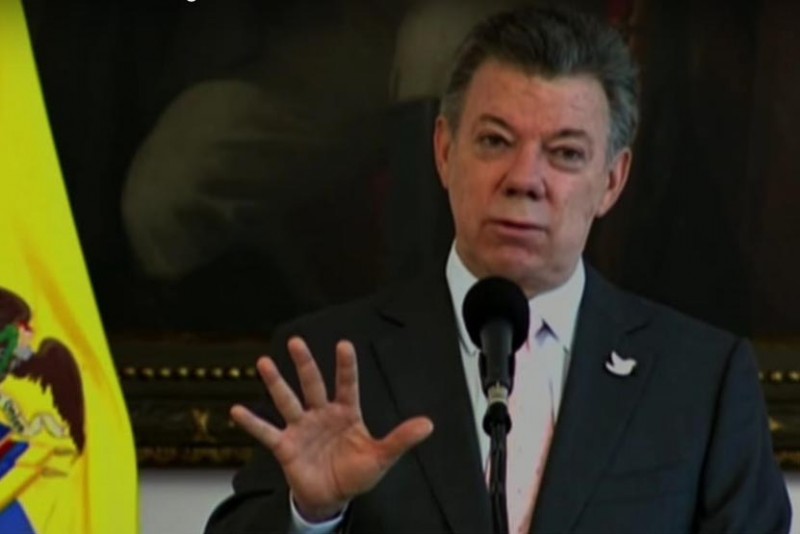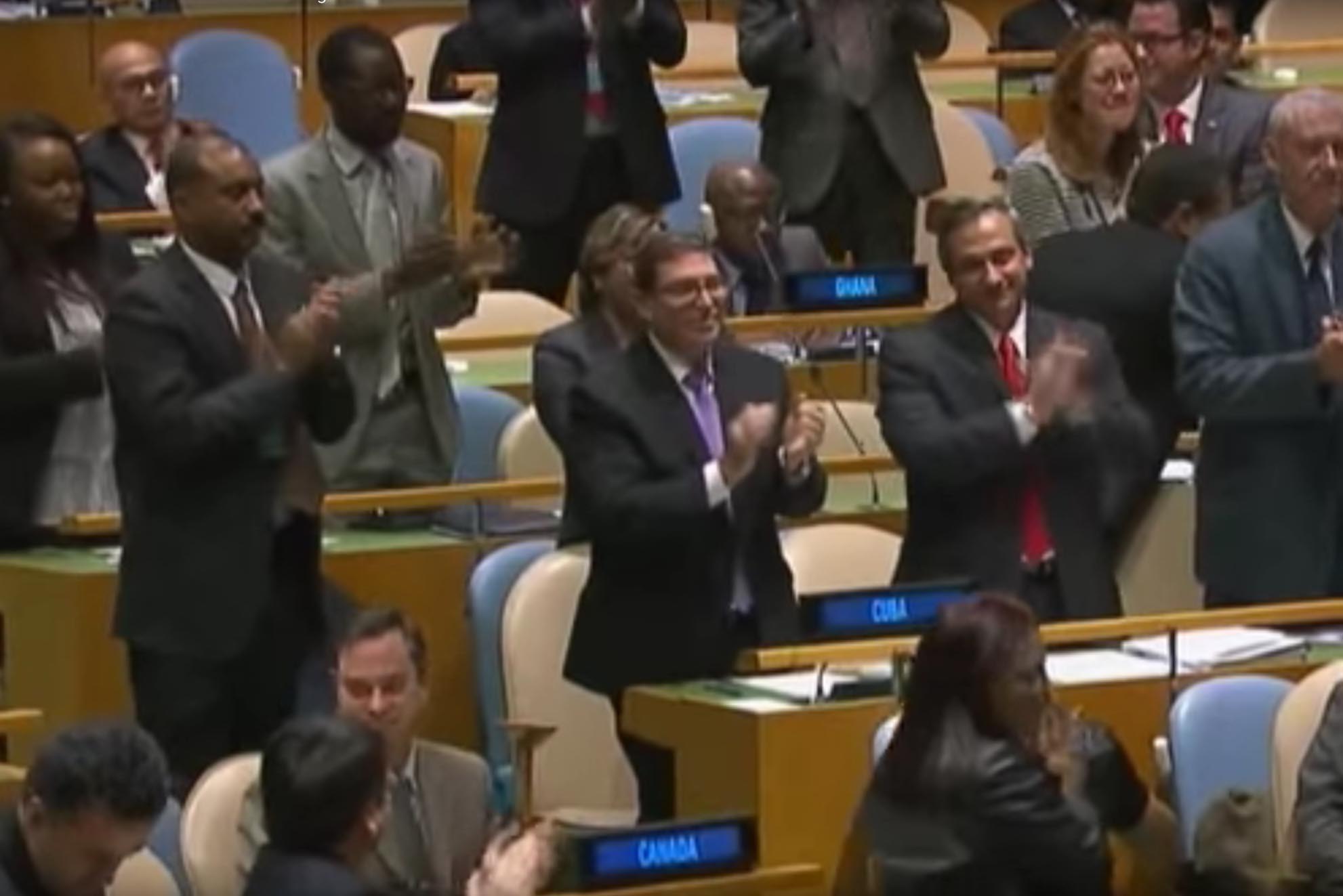
Caribbean, Cuba, Latin America: Week in Review
UN Supports Lifting of Cuba Embargo, US Position Increasingly Isolated
October 28, 2015 By Staff
Top Story — The United Nations on Tuesday voted overwhelmingly in support of a resolution demanding an end to the U.S. economic embargo on Cuba. The United States, having recently discussed abstaining from the annual vote, ultimately voted against the resolution for the 24th consecutive year.
A record 191 countries, including Cuba, sided with the resolution — an increase from the 188 countries that voted in its favor over the past three years. Only the United States and Israel voted in opposition to the resolution, which is nonbinding but is considered a way to call attention to the United States’ increasing isolation over the issue, according to The Associated Press.
Tuesday’s vote was the first since the historic December announcement that Cuba and the United States would be restoring diplomatic relations. The United States had recently discussed abstaining from the vote for the first time in 23 years on the condition that the resolution’s text be updated to reflect the recent cooperation between the two countries.
Abstention from the vote would have placed pressure on the Republican-led U.S. Congress to lift sanctions against Cuba, but U.S. officials said that attempts to engage their Cuban counterparts in such discussions were unsuccessful, and that the resolution’s text did not reflect significant changes. Speaking to The Associated Press six days before the vote, a U.S. official said the resolution “looks very similar to resolutions from previous years, and doesn’t appear to fully reflect the spirit of engagement that President Obama has championed as the best way to advance our shared interests with Cuba.”
Obama has shown support for an end to the embargo, and has urged Congress to repeal it. The State Department in May removed Cuba from its state sponsors of terrorism list, and the two countries have re-inaugurated embassies in each other’s capitals since announcing that they would be restoring diplomatic ties.
Just Published in Latin America News Dispatch
- Guerrilla groups, paramilitaries and government forces have disappeared more than 93,000 people during Colombia’s 50 year civil war — more than any other Latin American country. In our latest podcast, journalist Jessica Diaz-Hurtado brings us the story of one woman trying to find her disappeared husband.
Headlines from the Western Hemisphere
North America
- In a radio interview on Monday, Mexican Secretary of the Interior Miguel Ángel Osorio Chong announced that the United States is providing intelligence — but not on-the-ground assistance — in the hunt for the fugitive Sinaloa Cartel leader Joaquín “El Chapo” Guzmán, which has now spread across three different Mexican states.
- An unnamed source in the prosecutor’s office of Mexico’s Zacatecas state announced on Tuesday that authorities there found four severed heads in a cooler — a symbol, the prosecutors allege, of escalating tensions within the state between the formerly dominant Zetas cartel and the emergent Gulf and New Jalisco cartels.
- The Mexican state of Jalisco and a Chinese state-owned company agreed Tuesday to begin the initial due diligence process for the creation of a large manufacturing park that would become one of the Chinese government’s largest developments in Mexico, according to Mexican officials close to the deal who spoke with Reuters.
- The New York Times has published an in-depth look into a tax on sugary drinks in Mexico that was intended to fight the country’s obesity epidemic, and recent efforts to reduce that tax.
Caribbean
- The Dominican Republic has demanded the extradition of two French pilots who fled the country while awaiting an appeals trial on charges of trafficking cocaine.
Central America
- The long-running Honduran newspaper Tiempo announced Tuesday that they would be temporarily shutting their doors after the U.S Treasury Department froze the bank accounts of the publication’s owners — former vice-President Jaime Rosenthal and his Grupo Continental — on money laundering charges.
- Guatemalan prosecutors have detained 11 people, including the former private secretary to ex-President Álvaro Colom, and are searching for two more in connection to a scheme to set drug prices at public hospitals in exchange for kickbacks.
- El Salvador arrested an evangelical pastor and 28 alleged members of the Mara Salvatrucha gang on terrorism charges related to the alleged collection of extortion funds while posing as church members.
Andes
- Citing the increased threat of paramilitary forces engaging in smuggling and drug trafficking, Venezuela has ordered a state of exception in the southwestern state of Amazonas bordering Colombia, allowing for the temporary suspension of the rule of law.
- Ecuador will be investing more heavily in its mining industry by planning five large projects worth about $3.1 billion, with officials estimating that once the projects are operational, mining exports will reach almost $4 million annually.
- A Peruvian court found a Catholic priest guilty of raping a boy he supervised as a chaplain in a private school, and sentenced the priest to 35 years in prison on Tuesday, which precludes the possibility of an investigation by Peru’s attorney general into potential sexual abuse at the hands of the former head of one of the country’s elite Catholic societies.
Southern Cone
- Argentine opposition presidential candidate Mauricio Macri said Tuesday that his camp has begun talks with defeated candidate Sergio Massa, who has hinted that he may endorse Macri against ruling-party candidate Daniel Scioli.
- Argentina’s government has increased restrictions on U.S. dollar transfers, including a reduction of the daily amount companies can transfer abroad and a limit on hard currency assets insurers can hold — a decision that appears to be motivated by the looming runoff vote in the presidential elections.
- The majority of Brazilians are unwilling to pay higher taxes to pull the country out of its worst financial slump in 25 years because of their mistrust of President Dilma Rousseff’s ability to improve the economy, a CND/MDA poll has shown on Tuesday.
Subscribe to Today in Latin America by Email
